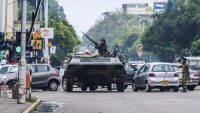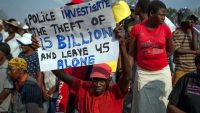
Understanding the New U.S. Terrorism Designations in Africa
Which armed groups did the U.S. designate under its terrorism authorities and what is their backstory?
Last week the U.S Department of State designated two armed groups in the Democratic Republic of Congo (DRC) and Mozambique, as well as their leaders. U.S. officials allege that these two groups – the Allied Democratic Forces (ADF) in the DRC, and Ahlu Sunna Wal Jammah (ASWJ) in Mozambique – have become Islamic State (ISIS) franchises. It refers to them as the Islamic State of Iraq and Syria – Democratic Republic of the Congo (ISIS-DRC) and the Islamic State of Iraq and Syria – Mozambique (ISIS-Mozambique).… Seguir leyendo »







